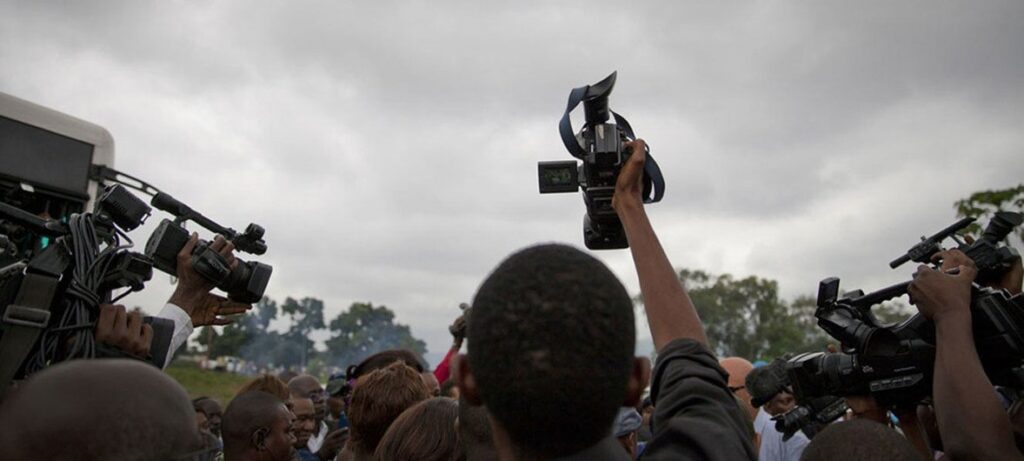A new investigation by A Safer World For The Truth into the attack on Central African Republic journalist Elisabeth Blanche Olofio reveals how local journalists reporting in conflict zones are vulnerable to brutal and sometimes lethal violence, and shows how such attacks are rarely investigated, leaving justice unserved.
“Telling The Story: Remembering Elisabeth Blanche Olofio” is the third in a series of investigations as part of the A Safer World For the Truth, a project by leading press freedom organizations Free Press Unlimited, Reporters Without Borders and the Committee to Protect Journalists, that investigates murders and holds governments accountable through the People’s Tribunal on the murder of journalists.
Working for radio station Radio Be Oko (“One Heart”), Elisabeth exposed local corruption and human rights abuses in the Central African Republic. At the time of the attack, Elisabeth was providing her community with crucial information on the ongoing rebel advance.
On January 5, 2013, she was severely beaten, tortured, and raped by Séléka rebels in her hometown of Bambari in connection to her reporting. She suffered from sustained psychological and physical trauma and succumbed to her injuries in June 2014. Elisabeth was 34 years old.
The report argues that local journalists like Elisabeth play a significant role in reporting on conflicts in their communities and for international audiences. In some cases, they are the only source of information in a region.
For that reason, local journalists are often targeted by warring parties in an effort to silence them, with female journalists in particular at risk of sexual or gender-based violence.
The investigation reveals potential suspects responsible for Elisabeth’s torture, rape, and death, explains how those responsible have evaded accountability, and documents the suffering Elisabeth endured as a result of the attack.
The report argues that the Prosecutor of the Special Criminal Court should immediately open an investigation into crimes against journalists committed by all warring parties in the Central African Republic since 2012, in adherence to the UN Plan of Action on the Safety of Journalists and the Issue of Impunity (2012).
The investigation further shows how plans to evacuate Elisabeth to a safe environment outside of the Central African Republic failed because there were issues with her official documentation.
After a year and a half of suffering, Elisabeth succumbed to her injuries in June 2014. This report strongly recommends that states prioritize and arrange emergency visas for local journalists at risk, including granting visas to immediate family members, to prevent murders of journalists and help them escape potential attacks, as happened in the case of Elisabeth. Emergency visas could be made available to the relatively small group of journalists worldwide who are in mortal danger and eligible for this support.



